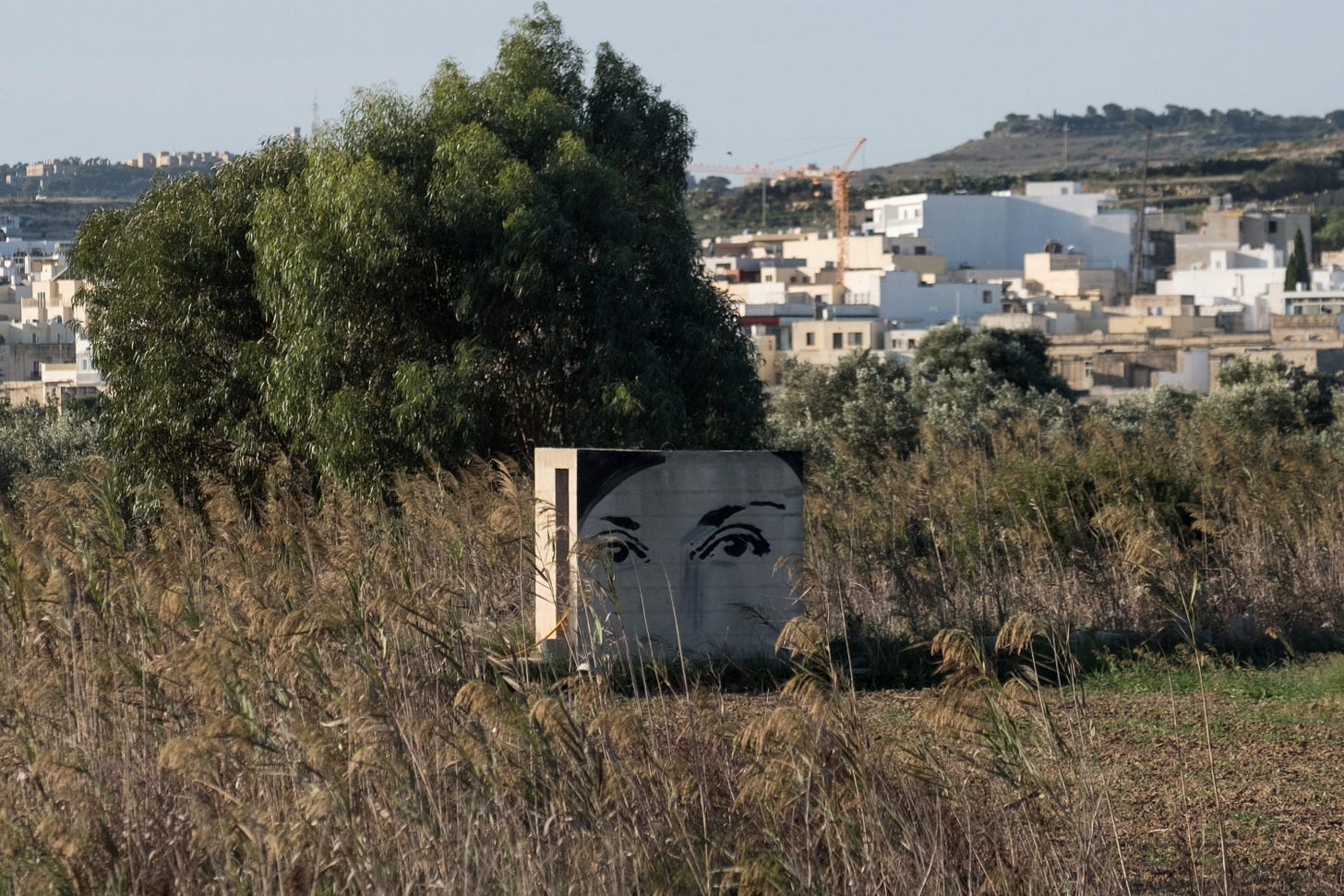Daphne's Fight Against Gangster Government
The murder of a journalist in Malta is finally being exposed.

If you have not already done so, read Ben Taub's clear, understated New Yorker piece about the big life and horrible death of Malta's most famous journalist, Daphne (whose formal name was “Daphne Caruana Galizia,” but who now needs only a first name). Read it not only because hers was in many ways an exemplary life, but because we in the United States now know firsthand how important the struggle against kleptocracy is. She died for it, on October 16, 2017.
Her brilliant, scathing blog, Running Commentary (which you can still find, here) was a passionate act of what we now call citizen journalism.
That may not sound like much to American ears—the original group of bloggers in the early 2000s referred to themselves as “citizen journalists.” But in Malta, the stakes are much higher. To give you an idea of what the sunny Mediterranean island of Malta—population 400,000—is like, Daphne was the fifth person killed in a broad daylight car bombing in just a four-year span.
Aside from Daphne, all of the other car bombings are more or less un- solved—and likely to stay that way—because they involved people in the fuel smuggling criminal underworld. And the only reason we’re figuring out who killed Daphne is because of the intervention of the FBI and the European Union—and the constant work of her three sons to unravel the plot.
I'm honored to say that I met Daphne Caruana Galizia twice. It was in Malta, first in the summer 2015 and then again in April 2016. On both occasions she dressed conservatively and without fuss, neither hip nor a hipster, but actually a revolutionary. She seemed to spend no time giving a performance of herself. In the right circles Daphne was already legendary, but I’ve rarely met a person with less vanity. One of the reasons she was able to accomplish so much is that she got out of her own way.
I was introduced by a friend who knew that I was researching Libyan fuel smuggling. I wanted to talk to Daphne about two men: a Libyan named Fahmi Slim and a Maltese fisherman and ex-football (soccer) player named Darren Debono. I had been told (by very brave Libyan and Maltese sources) that the smugglers' connections reached high up in the government of Malta, one of the world's most corrupt. (This is the piece that I published.)
To give you another sense of Malta, while Fahmi Slim has been jailed in Libya since August 2017, until very recently Darren Debono was running around the streets of Malta after having been arrested by Italy. Judges and high police officials were said to eat at his seafood restaurant; when I tried to get a table in the empty room quite early one evening, I was told they were all reserved.
It was like a bad movie about the Mafia. Malta is like that.
As it turned out, while Daphne knew some things about smuggling, that racket was ancillary to her main interest: exposing and bringing down the criminal government of Joseph Muscat. And while I could laugh at the cartoonish misdeeds of the governing class, joke about its unbecoming E.U. membership, and then go home to the States, Malta was Daphne’s home.
Which is why the more time I spent in Malta, the more incredible her courage appeared.
Think of it this way: When Daphne was killed, no one was surprised by her murder.
Daphne’s story has always resonated with me as a portrait of courage and bravery. But these days it’s also a reminder that, no matter how “civilized” or modern a society may appear to be, democracy often hangs by a thread.

